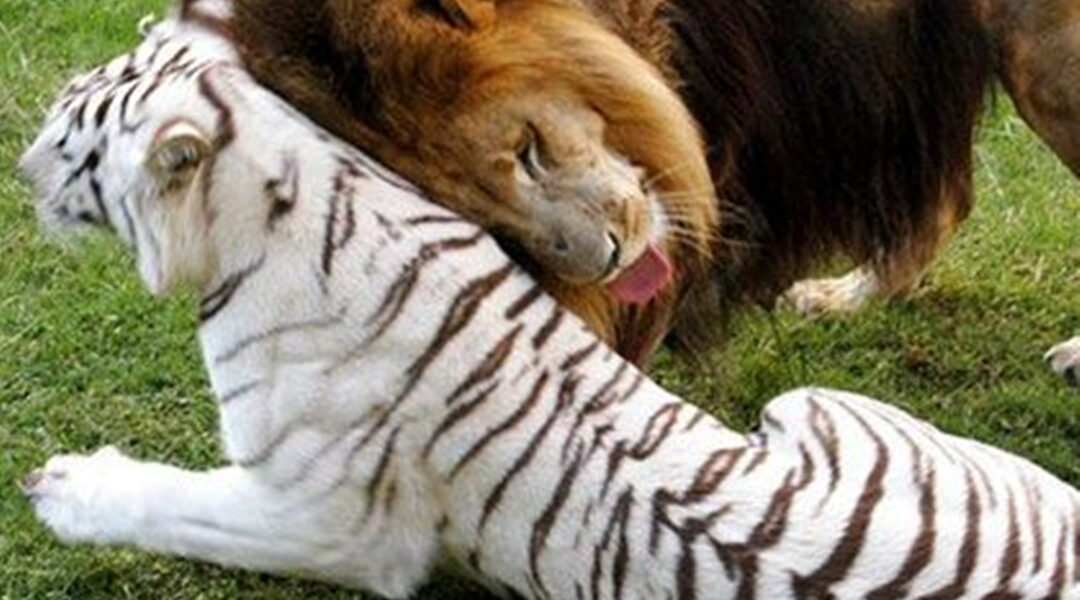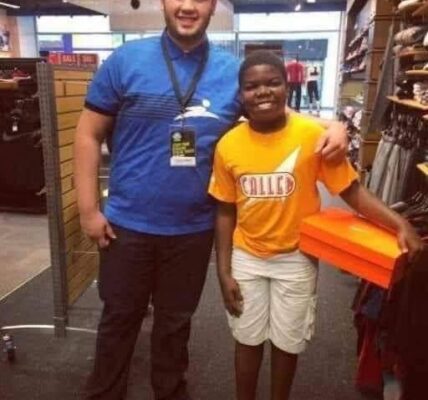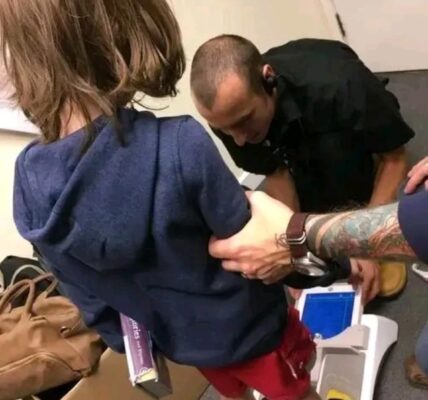Love stories are often told in human terms, but sometimes the most touching ones unfold in the animal kingdom. At Big Cat Rescue in Florida, a maneless lion named Cameron and a white tiger named Zabu became proof that love knows no boundaries—not of species, not of circumstance, not of scars from the past.

Their journey together began not in freedom, but in exploitation.
Both were born in 2000 at a roadside zoo in New England, their lives pre-scripted for profit. Cameron, the African lion, and Zabu, a Siberian-Bengal mix tiger, were intended to breed “ligers,” a hybrid prized for spectacle rather than care. From the start, their existence was not about dignity but about what others could gain from them.
By 2004, everything changed. Big Cat Rescue intervened and gave Cameron and Zabu something they had never known: safety. For the first time in their lives, they were no longer commodities—they were simply Cameron and Zabu.
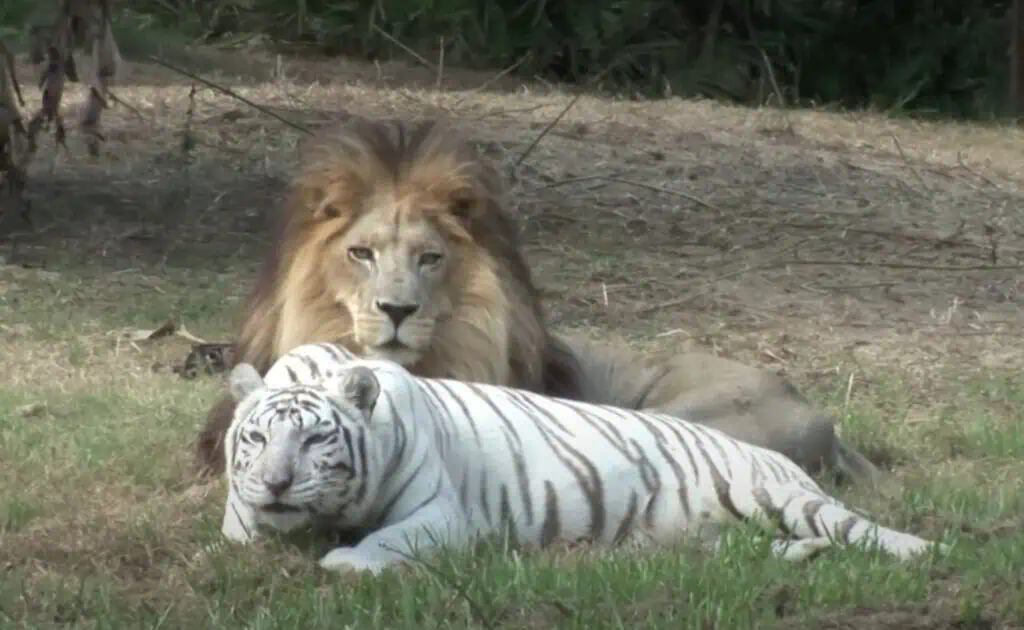
But freedom came with scars. Cameron was severely underweight, the neglect of years evident in his frail body. Zabu bore a genetic flaw from irresponsible breeding—her shortened upper lip exposed her teeth permanently, leaving her appearance a stark reminder of human interference. Yet despite everything, the two shared a remarkable bond. Wherever one went, the other followed.
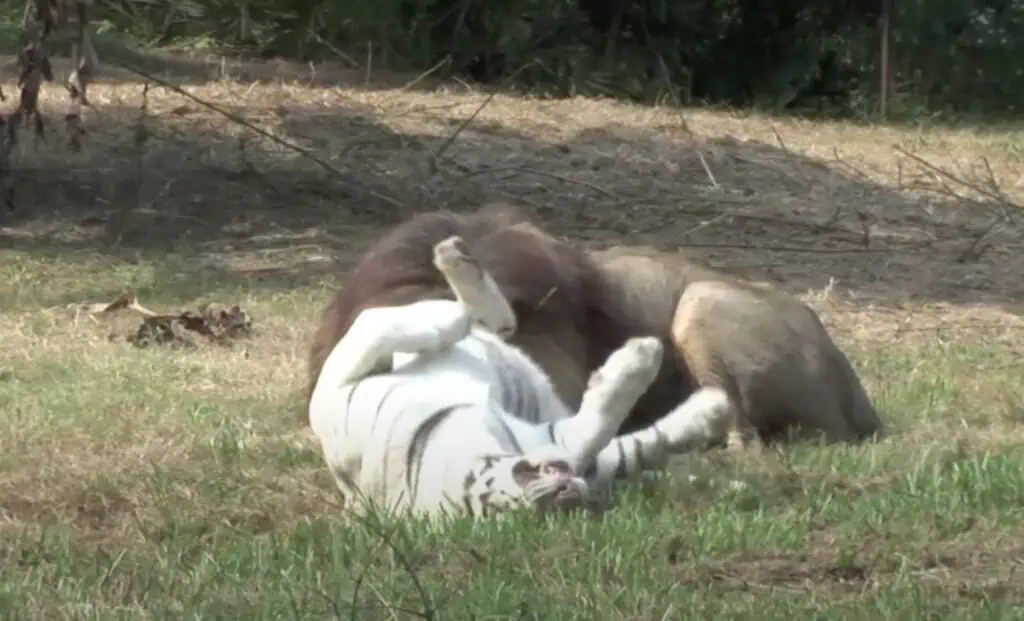
The sanctuary recognized what they had together and gave them a home worthy of their bond: a spacious natural enclosure where they could roam, rest, and grow old side by side.

There was, however, a challenge. Cameron, like all lions, was driven by instinct. After receiving a vasectomy to prevent breeding, he still became possessive whenever Zabu went into heat. His aggression grew so strong that the staff feared for both cats’ safety. To protect her, Zabu was spayed. For a time, it worked. But eventually, Cameron’s testosterone-driven behavior resurfaced.
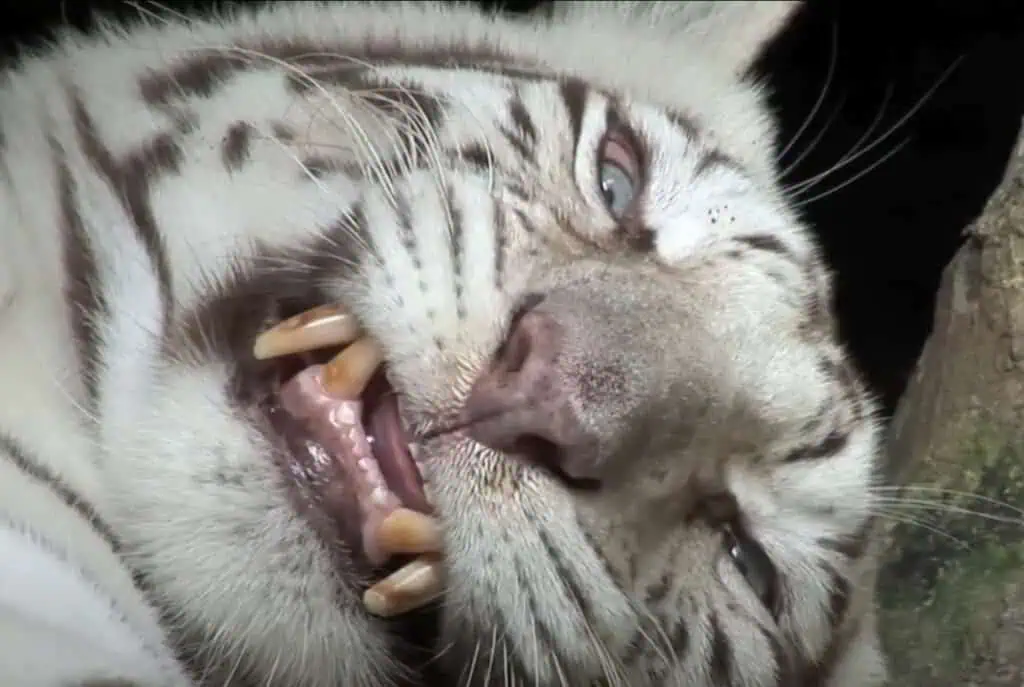
The sanctuary faced a difficult decision: separate the couple forever or neuter Cameron.
It was not a choice made lightly. Neutering Cameron would mean the loss of his mane—the very symbol of his lionhood. But it would allow him to remain with Zabu, the tiger who had become his partner, his comfort, his family.
They chose love.
The surgery changed Cameron’s appearance, but it preserved his bond with Zabu. He lost his mane, but he kept what mattered most—his life with her. And in return, Zabu kept her lion.
Life together became simple, joyful, and filled with the kind of moments that reveal what love looks like in its purest form. Zabu, playful and full of energy, often pestered the calmer, sleepier Cameron, nudging him, pawing at him, urging him to play. And when she tired, she curled up against him, content in the warmth of his presence. Cameron, for his part, groomed her lovingly—licks, nuzzles, and soft chuffs that spoke louder than words ever could.
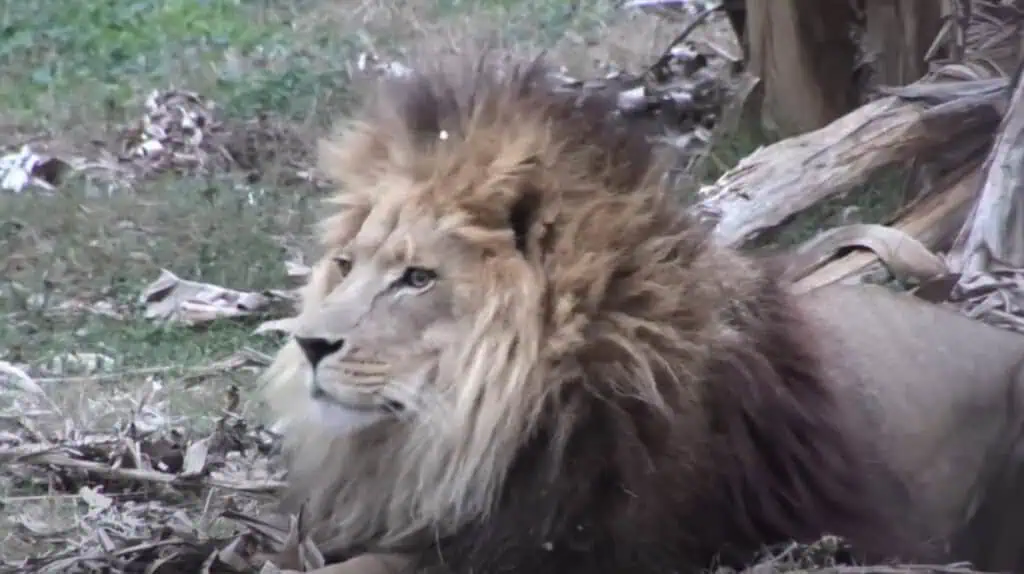
Visitors marveled at the unusual couple. They came expecting ferocity but instead found tenderness. They expected two predators but witnessed partners.
What their story revealed was something deeper than novelty—it was resilience. Both animals had been born into a world that wanted only to use them. Yet in the end, they found dignity, care, and above all, each other.
Cameron and Zabu’s love story is more than a curiosity. It is a reminder of the bonds all creatures are capable of forming when given the chance to live free from exploitation. It is proof that compassion can change lives—not just for humans, but for every living being.
And for the staff at Big Cat Rescue, the decision that once seemed so hard—choosing Cameron’s mane or his love—proved to be no choice at all. Because the mane was only fur. Love was everything.
In their enclosure, under the Florida sun, Cameron and Zabu lived out their days together—an unlikely lion and tiger couple who taught anyone who stopped to watch that love, in its truest form, is not bound by appearance, expectation, or even species.
It is bound only by the heart.
